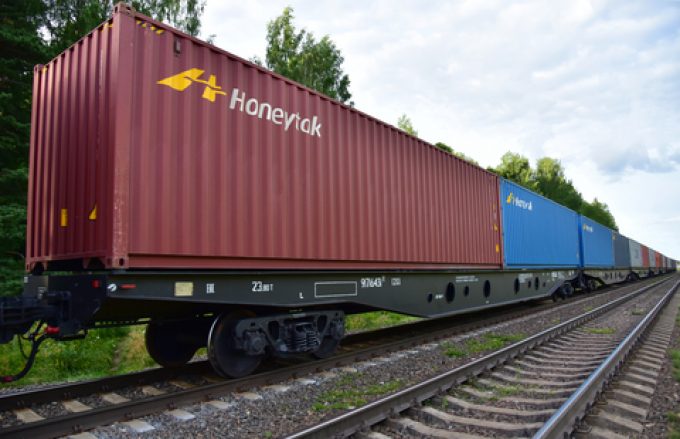China launches new rail service to boost volumes to Europe via Caspian Sea
China is eyeing a four-fold increase in container volumes going via its Middle Corridor rail ...

The China-Europe rail freight network is suffering congestion and delays from two broken cranes on the Kazakhstan border with China.
According to New Silk Road Intermodal (NSRI), two out of three cranes operating at the Altynkol transhipment terminal in Khorgos have broken down, prompting widespread delays and schedule changes.
NSRI said: “The cranes are under repair and, accordingly, two-to-three batches of trains cannot be loaded on time every day. The transport schedules for November will be suspended.”
CEO Jacky Yan added: “China Railway has ...
Trump tariffs see hundreds of cancelled container bookings a day from Asia
'To ship or not to ship', the question for US importers amid tariff uncertainty
'Chaos after chaos' coming from de minimis changes and more tariffs
Forto 'sharpens commercial priorities' as it lays off one-third of staff
List of blanked transpac sailings grows as trade war heats up and demand cools
EC approves DSV takeover of DB Schenker
Overcapacity looms for ocean trades – with more blanked sailings inevitable
Amazon Air’s metamorphosis: 'a different air cargo unit from two years ago'

Comment on this article
Mitra Raheb
October 16, 2022 at 1:35 amThe delay will further aggrevate European economies which in turn lead to greater social discontent within European cities. The impact of the Ukrainian conflict on Europe will linger long after the end of the conflict.